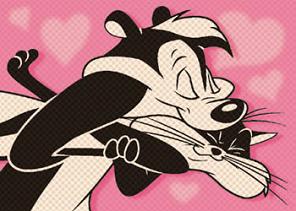
“An opaline vision of Americans in France.”
“Lyricizes the flesh and France with the same ardent intensity.”
“A voyeur of the imagination.”
I snatched the above phrases from a 1967 New York Times book review of A Sport and a Pastime, James Salter’s unabashed and poetic erotic novel.
Because I’m quite taken with Salter—by the impressionistic sweep of his sentences, by his sharp, yet lovely descriptions—I expected more than just an erotic novel and was surprised when it stayed on that plane.
Not that it wasn’t enjoyable as such.
As the review in the Times put it, “Salter celebrates the rites of erotic innovation and understands their literary uses. He creates a small, flaming world of sensualism inhabited by Dean and Anne-Marie, and invaded by the imagination of the narrator. We enter it. We feel it. It has the force of a hundred repressed fantasies.”
The key phrases here are “invaded by the imagination of the narrator” and “a hundred repressed fantasies.”
Most critics I’ve read take this story at the level of realism without taking into account the narrator’s point of view. The events recounted in the novel are imagined by the narrator, after all, and in doing so he effectively becomes neutered by his own tale—a man who can’t score, but loves to imagine his new best friend, Philip Dean, who “comes like a bull,” having sex time after time as if he’s just stepped out of Penthouse Forum, his gal Anne-Marie worshipping his penis as if it were a shrine—as only this repressed narrator could.
In fact, the narrator has surrendered his life to Dean in a sense. "I am only the servant of life. He is an inhabitant," he says. "I breathe to the rhythm of his life which is stronger than mine."
I don’t think Salter meant this to be a homoerotic tale, but it can certainly be interpreted that way. The narrator masks his graphic imaginings by weakly claiming a sexual obsession with Anne-Marie, but any good heterosexual man's sexual obsessions would turn into fantasies starring himself rather than his best friend.
So Salter either made a narrative choice that fails on one level, obfuscating the purpose of the sexual reveries, or perhaps he wanted the narrator to have a dual purpose--even a bisexual purpose. For the reveries aren’t entirely focused on the hero worship of Dean—no, Anne-Marie is objectified in such a way that would make any good collegiate feminist cringe. She's woman defined as sexual vessel. Salter cloaks her in a mystical sort of language that seems to give her power, but is animalistic in the end. She has the clarity of impulses, but not of thought: She "understands effortlessly. Life is all quite clear to her. She is one with it. She moves in it like a fish, never wondering if it has a bottom, shores, worlds about it."
Just as Anne-Marie is present as a character only to be fucked, Dean is present mainly to fuck, although he’s festooned with a bit more characterization (he’s a born operator, a natural in nearly everything he does, too good for Yale so he had to drop out, effortlessly charming, and when not with Anne-Marie, driving the narrator speedily around France in a stylish sports car—yes, he's more stereotype than character, that perfect, rich, handsome, decadent, young American abroad).
"Vaincre ou Mourir" a sign reads at the narrator's house--a saying that looms over the novel. Dean is the character who will vanquish, and hence live, at least in the narrator's view, if only because he has to live through another. "One must have heroes, which is to say, one must create them. And they become real through our envy, our devotion. It is we who give them their majesty, their power, which we ourselves could never possess."
The narrator then doesn't need to vanquish in order to live, but imagine and create to live. It might be a life once removed from real life, but I'm not sure if it's any less powerful. One could easily argue that the narrator's vivid imaginings might be more powerful, more lively than Dean's life itself.The Times review claims that the narrator plays only a functional role, and that’s true, but in the carrying out of that function, lacking any memorable characterization, you can’t help but wonder why this fellow spends his day imagining his best friend in bed. Isn’t there a movie in town? A pornographic magazine to buy?
The narrator might be a sad sack, but with his (Salter's) imagination, it is forgiveable that he neglects to look at the movie listings, for this novel is one hell of a sexual romp, and Salter is too good of a writer not to deliver sentences and paragraphs that are painterly, moody, erudite, and arresting.
This world lacks a God, and other than the necessity to earn the money to drink France's good wine and pay for fine hotels, the idea of work seems quite distant and ridiculous in light of a night with Anne-Marie--a night draped in the rich, sensual possibilities of France.
And Salter is a fantastic erotic writer, if only because he's a lover of surfaces and a natural sensualist. "Painterly" is the kind of description that gets tossed around easily, but it deeply and intrinsically applies to Salter's prose. The pleasure of reading him is not found in the usual reasons one appreciates a novel--plot movements, the polyphonous nature of the world, the texture of tense points and counterpoints--but in the moments he presents, which are often as seductive and pregnant as a lover's caress.
That's why this book can be both a dirty book and a beautiful book. That's why Salter can commit the crimes he wants to.

 Why is it so difficult to create a decent romantic comedy?
Why is it so difficult to create a decent romantic comedy?

